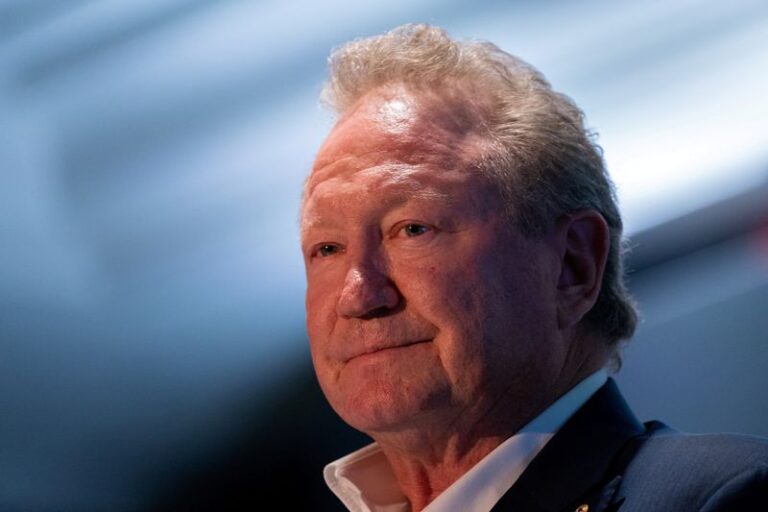Written by Julia Payne
PARIS (Reuters) – Carbon capture is not the solution to the energy transition and political leaders need to offer real promises, not greenwash, to encourage investment, says Fortescue Metals executive Chairman Andrew Forrest said on Tuesday.
Speaking at the International Energy Agency's 50th anniversary meeting, Australian billionaire Forrest said the investment community needed a level playing field and honest answers from political leaders on phasing out fossil fuels for investment. said it was necessary.
“A simple question from business leaders…when are we going to stop burning fossil fuels?” Mr Forrest told the Paris conference.
“If you want capital to move…there must be clear and unequivocal disincentives for those who are doing harm, and there must be clear incentives for those who are doing good.”
Countries including the United States have introduced public subsidies for carbon capture and storage (CCS) projects as part of incentives to drive the transition to green energy.
CCS technology captures carbon dioxide, often emitted from sources such as factory smokestacks, and prevents it from being released into the atmosphere. The captured CO2 can be stored permanently underground or reused in industrial processes that use CO2.
With oil demand growth not expected to peak until the end of the century at the earliest, Forrest said carbon capture is not a viable solution.
“We're going to keep burning fossil fuels and somehow magically get the carbon out of the ground. There's no evidence that it's going to stay there, but there's a lot of evidence that it's going to fail,” Forrest said. spoke at the meeting.
“I tell policymakers around the world not to be the next idiot waiting for an old lie to be overturned. Say you believe in carbon sequestration. It's just been failing for 75 years. …That’s a complete lie.”
Australia's Fortescue, a major producer of iron ore used in steelmaking, last year announced a new project to produce green steel on a commercial scale. Steel manufacturing accounts for the majority of the world's heavy industry emissions, and its trade has been a source of contention between the US and the EU, with negotiations on a “green steel” trade deal so far failing. There is.
(Reporting by Julia Payne; Editing by Sharon Singleton)


